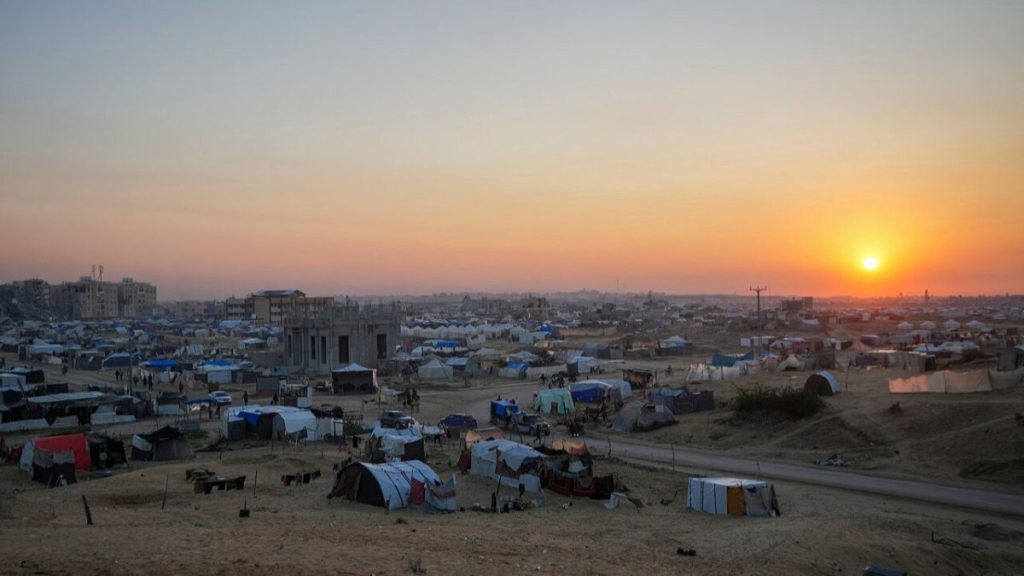The Palestinian Central Bureau of Statistics (PCBS) paints a grim picture of Gaza’s demographic landscape in the wake of the 2023 conflict. Their data reveals a staggering population decline of approximately 160,000 individuals, a figure representing a 6% decrease. This decline is attributed to two primary factors: the devastating death toll, estimated at over 55,000, with a further 11,000 missing and presumed dead, and the exodus of approximately 100,000 Palestinians who have fled the enclave since October 7, 2023. The PCBS highlights the catastrophic human and material losses, emphasizing the ongoing nature of what they term “aggressive, brutal Israeli aggression.” While Israel’s foreign ministry disputes these figures as fabricated, the United Nations Office for the Coordination of Humanitarian Affairs (OCHA) corroborates the PCBS’s population estimate of 2.1 million remaining in Gaza as of July 2024.
The staggering loss of life and the widespread destruction in Gaza have led to accusations of genocide against Israel by multiple human rights organizations, including Human Rights Watch (HRW) and Amnesty International. These organizations point to the scale of the devastation and the systematic targeting of essential civilian infrastructure, particularly the water supply, as evidence of genocidal intent. HRW, in a December report, detailed how the deliberate restriction and targeting of Gaza’s water supply has resulted in countless deaths from malnutrition, dehydration, and illness, particularly among vulnerable populations like infants and children. This systematic denial of essential resources, HRW argues, constitutes a crime against humanity, specifically the crime of extermination. The organization acknowledges that while their report does not definitively conclude that genocide has occurred, the patterns of conduct observed, coupled with statements from Israeli officials, “may indicate” genocidal intent.
Amnesty International echoed these accusations a few weeks prior to HRW’s report, directly accusing Israel of committing genocide in Gaza. Israel vehemently denies these allegations, dismissing them as “blood libels” and “anti-Israel propaganda.” The Israeli government maintains that their actions are directed solely at Hamas militants and not at Gaza’s civilian population. They further assert that they have actively facilitated the flow of water and humanitarian aid into Gaza throughout the conflict. This claim, however, directly contradicts the accounts of numerous Palestinians, utility employees, doctors, healthcare workers, and aid workers interviewed by HRW, as well as analysis of satellite imagery, photos, and video evidence.
The legal and international ramifications of these accusations are significant. The International Court of Justice (ICJ), the UN’s highest court, ruled in January that Israel must prevent acts of genocide against Palestinians. This ruling, which emphasizes the responsibility of states to protect civilian populations from genocide, adds further weight to the allegations against Israel. Furthermore, the International Criminal Court (ICC) is currently seeking the arrests of Prime Minister Benjamin Netanyahu and former Defense Minister Yoav Gallant for alleged war crimes, underscoring the seriousness of the international community’s scrutiny of Israel’s actions in Gaza.
The core of the debate surrounding the accusations of genocide centers on the question of intent. Under international law, proving intent is crucial to establishing the crime of genocide. While HRW stops short of definitively declaring genocide, their report highlights a disturbing pattern of conduct that raises serious concerns about potential genocidal intent. The systematic destruction of essential infrastructure, the deliberate restriction of water and other vital resources, and the resulting deaths of civilians, particularly vulnerable populations, all contribute to this alarming picture. Israel’s insistence that their actions are targeted solely at Hamas and that they are facilitating humanitarian aid is contradicted by the evidence gathered by HRW and other human rights organizations.
The situation in Gaza remains dire, with millions of civilians facing severe humanitarian challenges. The accusations of genocide against Israel, coupled with the ongoing investigations by the ICC, highlight the gravity of the situation and the urgent need for accountability. The international community must continue to pressure all parties to ensure the protection of civilians and to address the underlying causes of the conflict. A lasting resolution requires not only an end to the violence but also a commitment to addressing the humanitarian crisis and ensuring the fundamental rights of the Palestinian people. The future of Gaza hinges on a concerted effort by all stakeholders to prevent further suffering and to create a sustainable path towards peace and justice.














